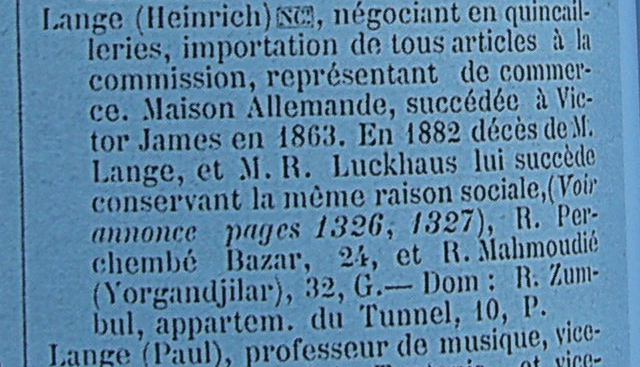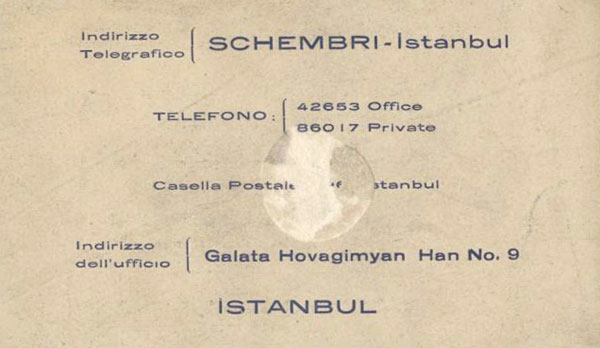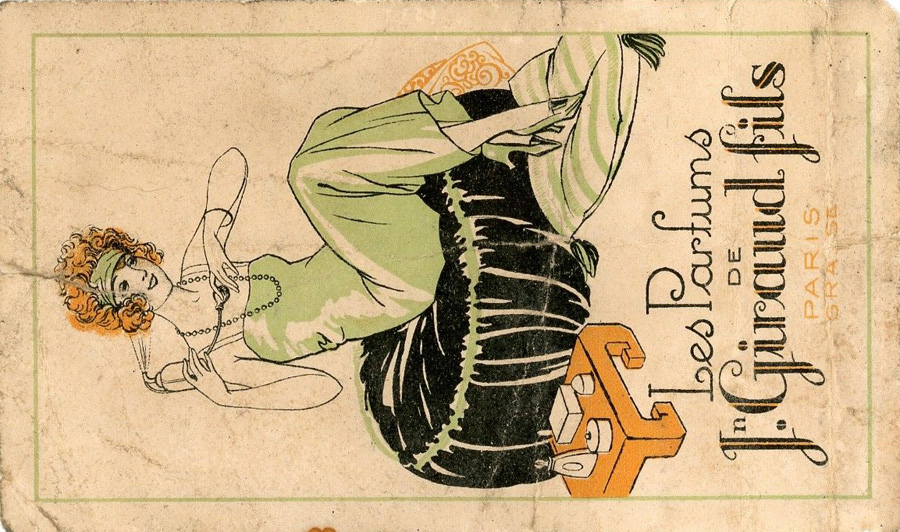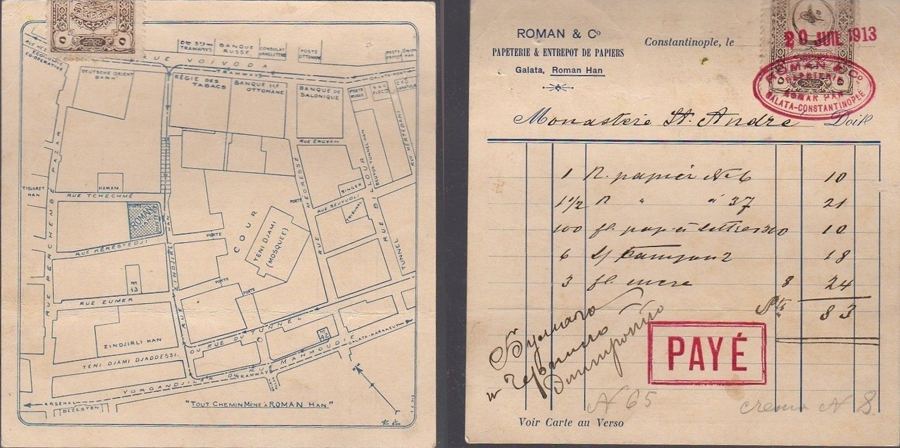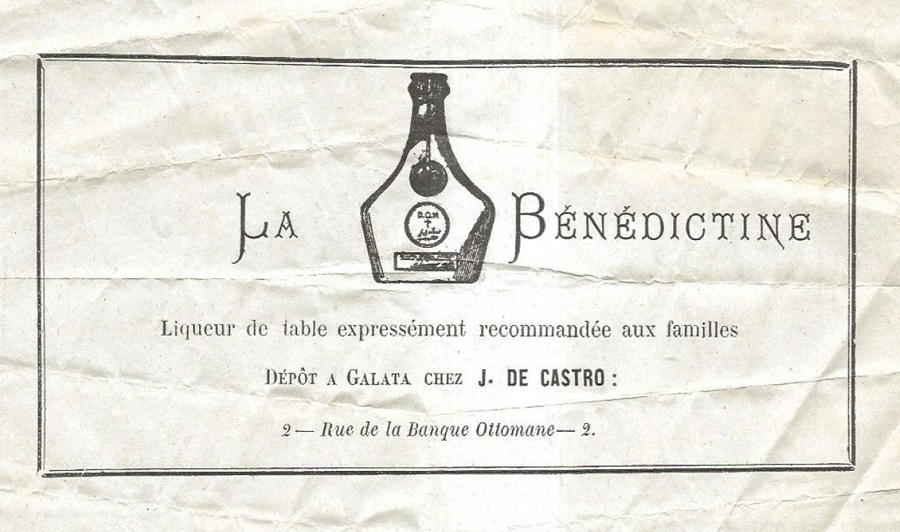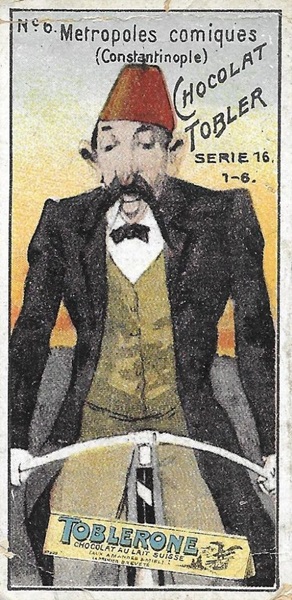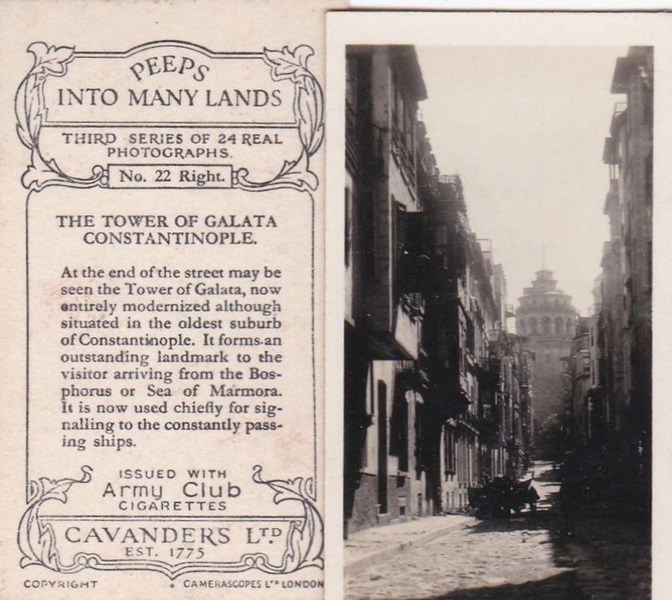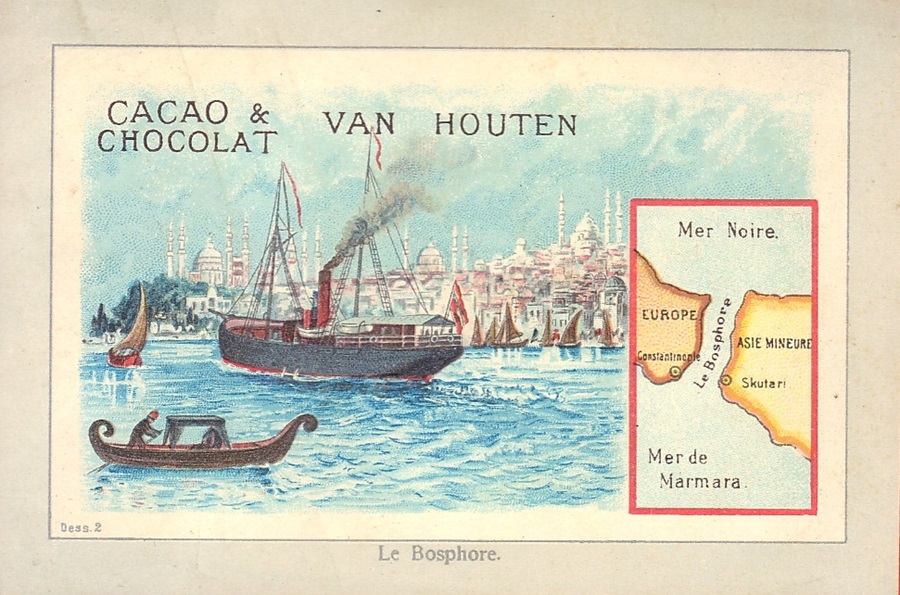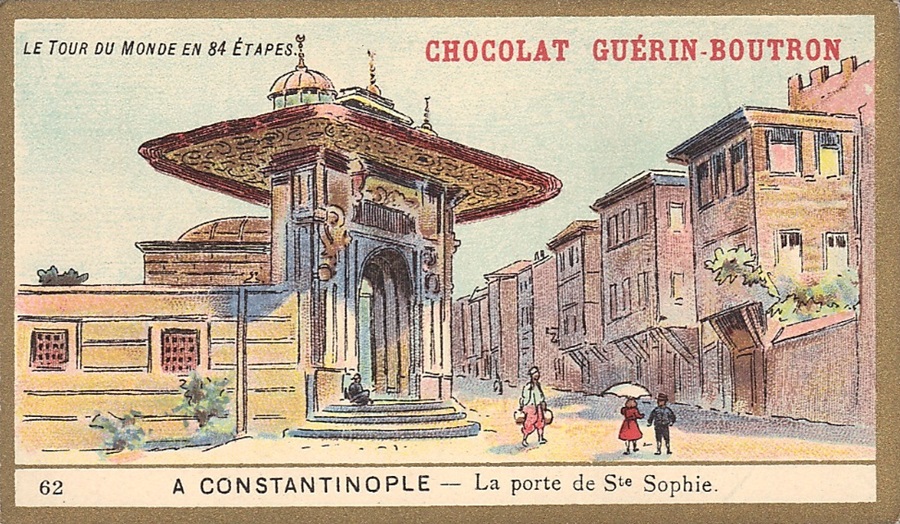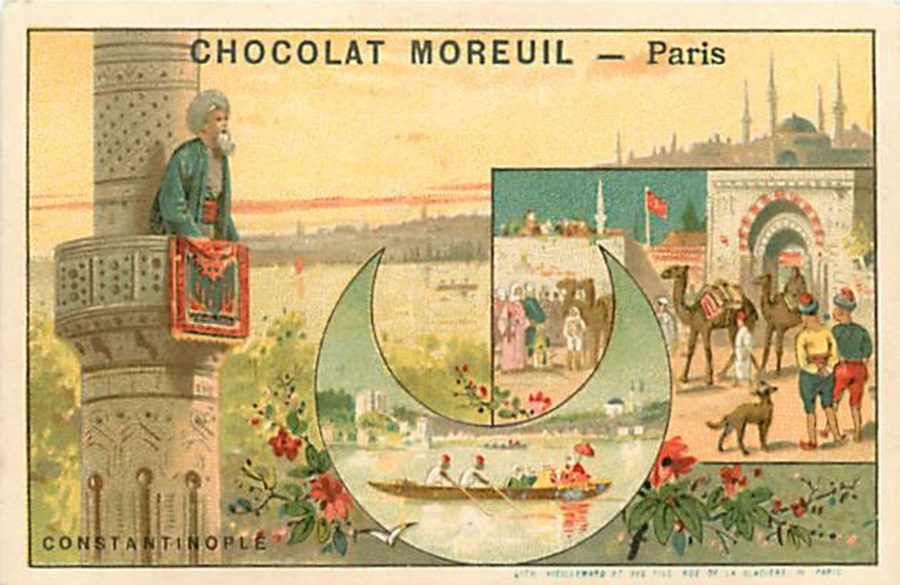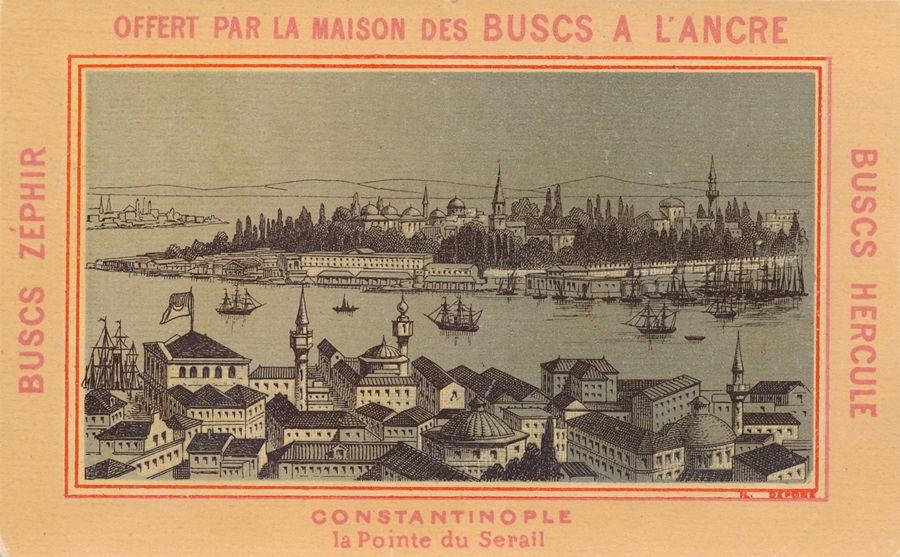
Ephemera
Advertising cards
Advertising cards were an early version of the now ubiquitous business card, but often they had a section on the back to act as a mini invoice for their trade. These cards are useful as they not only detail the nature of the business, range of good traded and address. Often French was the most prominent or only language used, and the other languages of the Levant such as Greek, Turkish, Armenian, and sometimes Ladino or English show the multicultural environment in which these businesses functioned and no doubt most could also converse in.
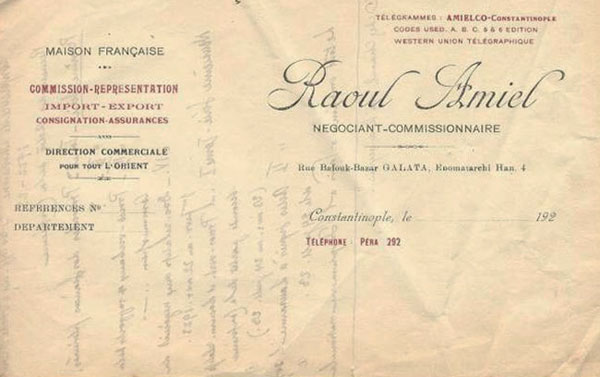
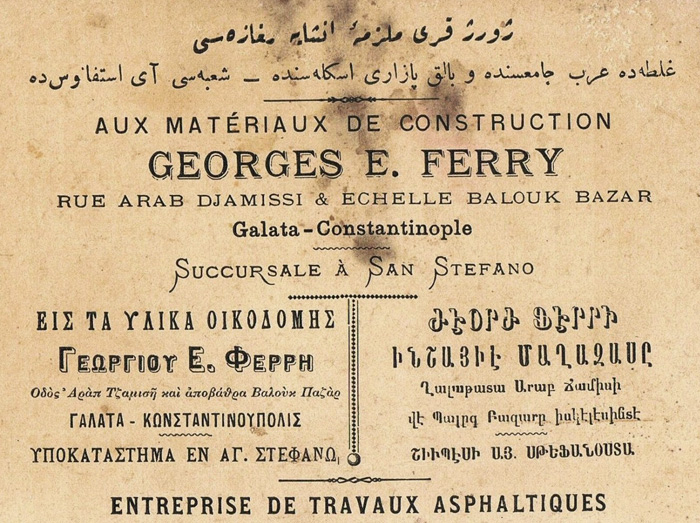
A merchant from the Catholic Ferry family that seems like many Levantines have migrated from the strongly Catholic Islands of Tinos in the Aegean - further info: This company was engaged in construction and asphaltic materials, with a branch in St Stefano, the once strong Levantine neighbourhood corresponding to today’s Yeşilköy.
Maltese origin Schembri family were ship owners and brokers.
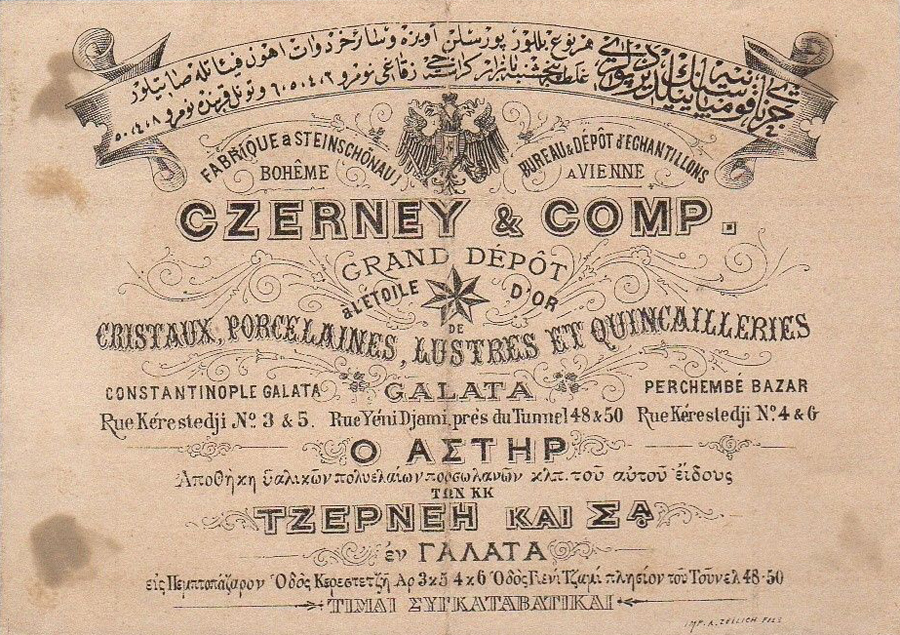
The Czerney (possibly Czech in origin) shops in Constantinople dealt in imported Austrian and Bohemian fancy household goods including crystal, porcelain, chandeliers and hardware.
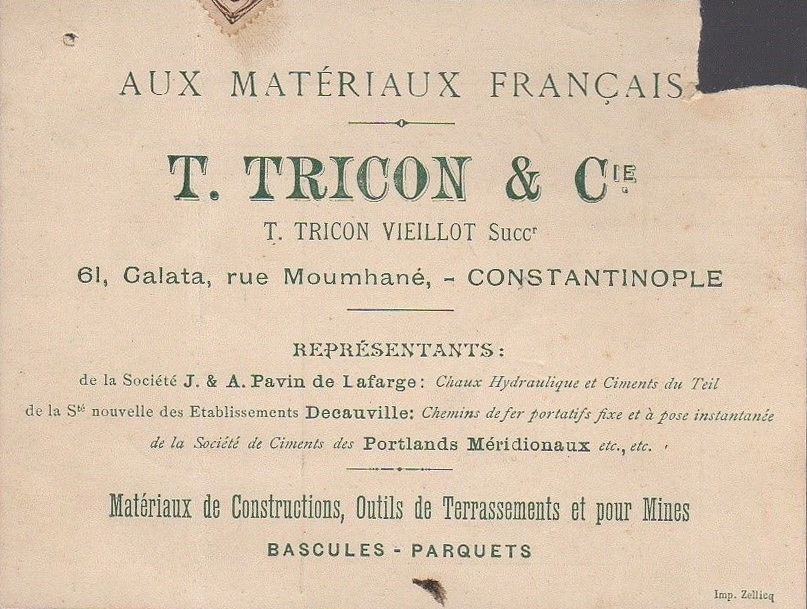
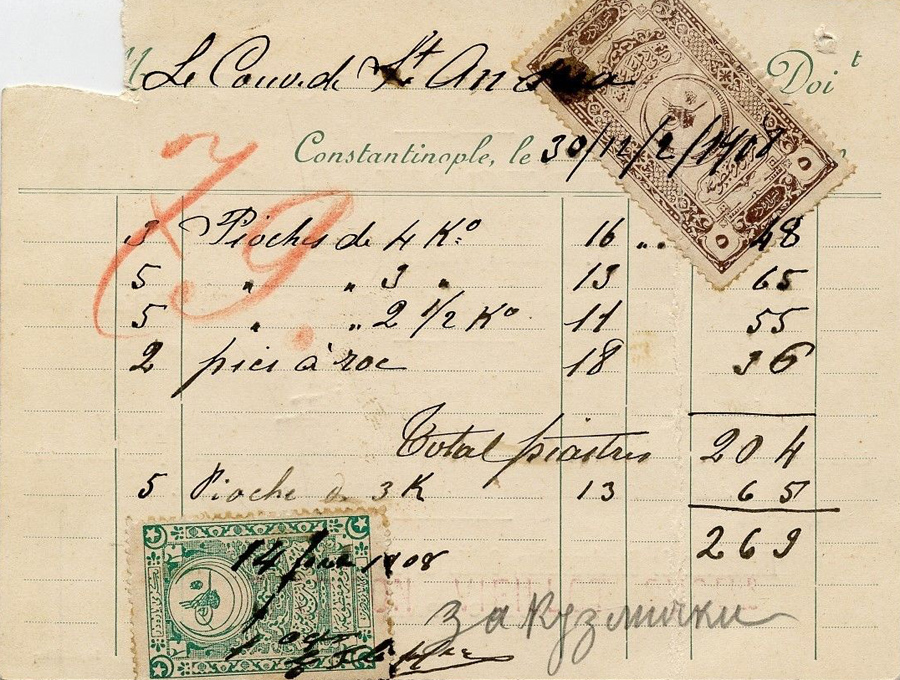
Advertising card from the Frenchman T. Tricon company from 1908 which specialised in cement trading.
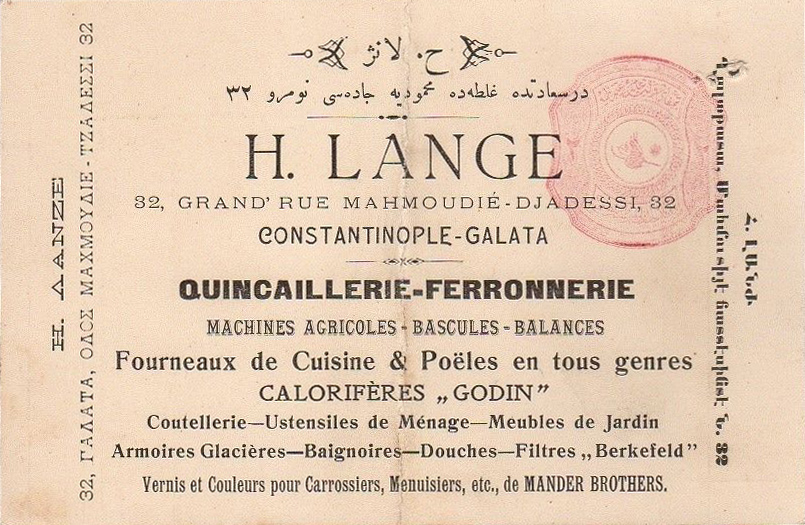
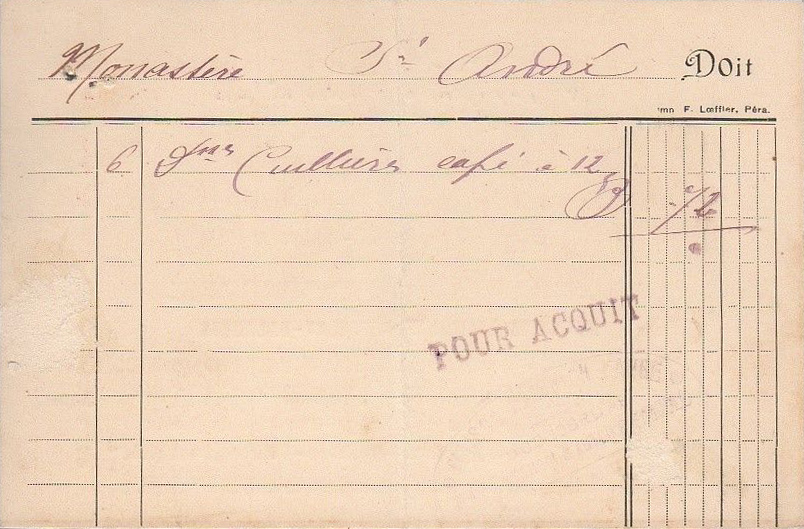
H. Lange, there is so far no evidence he was related to Paul Lange, the German musician, teacher, orchestra and choir leader who lived and worked in Istanbul around the same time. This company traded in ironware such as radiators, garden furniture, bath tubs etc.
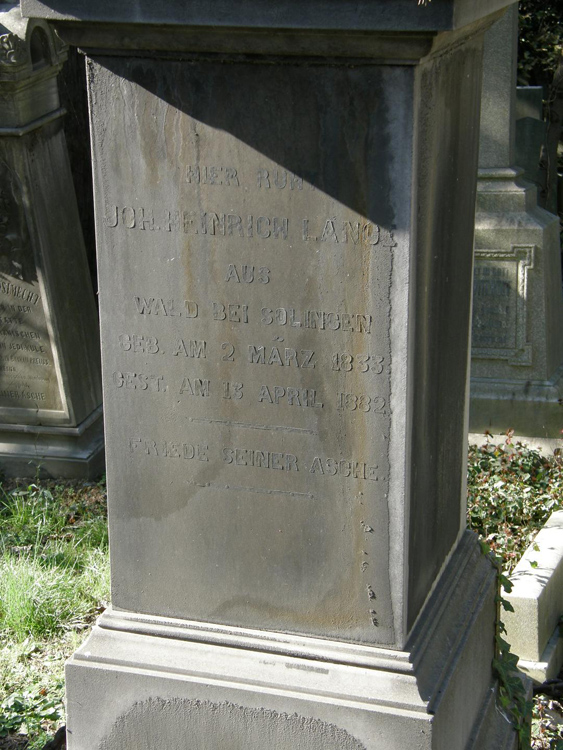
Johann Heinrich Lange was a German merchant who settled in Constantinople in 1863 and died there on 13 April 1882. He was born in Wald bei Solingen in northern Germany on March 2 1833. He is buried in the Protestant cemetery of Feriköy as seen. Below is the entry from the Almanac of Annuaire Oriental Cervati of 1895. The entry also shows how businesses survived by being transferred as presumably going concerns under the same umbrella name ‘Maison Allemande’, him succeeding the possible British Victor James and him post-mortem being succeeded by possibly another German M.R. Luckhaus.
